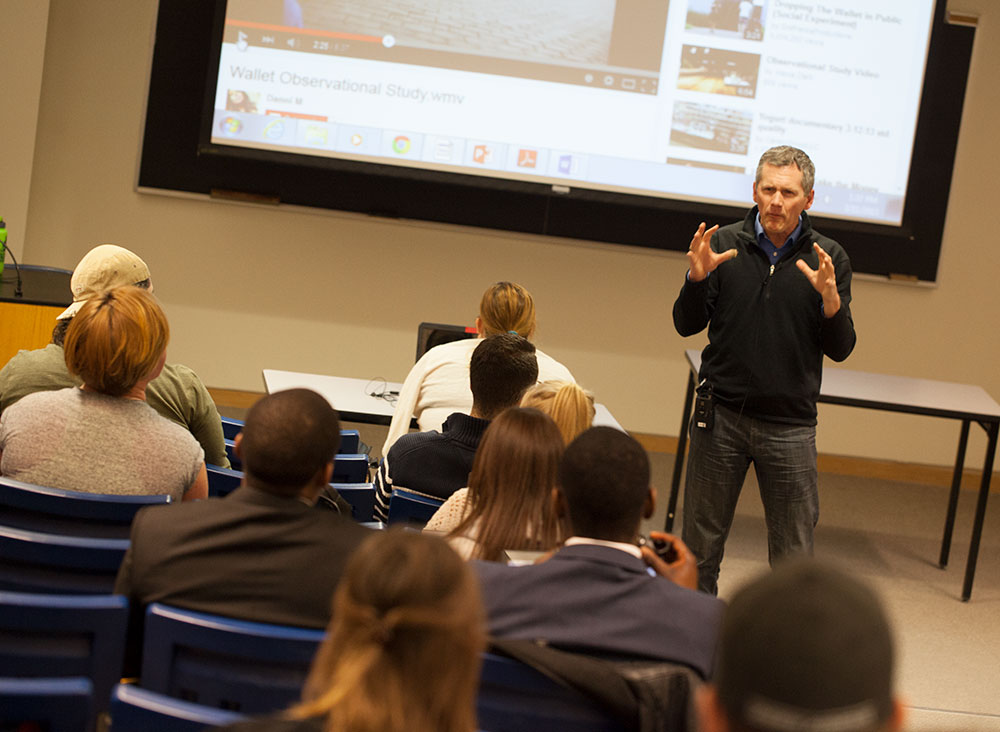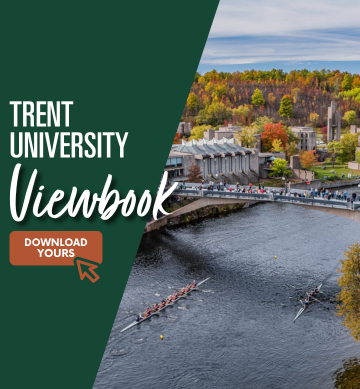Forensic Science
Gain the theoretical and practical experience needed to become an expert in evidence analysis and crime investigation. Trent’s direct-entry professional Forensic Science program teaches core science in biology, chemistry, and anthropology, and integrates those topics with law and applied investigative practice. Here at Trent, you’ll receive a comprehensive forensics education with opportunities to take specialized forensics courses like Crime Scene Investigation, Wildlife DNA Forensics, and Biocrime and Bioterrorism. You will also learn the latest investigative techniques in one of many applied forensics spaces. When you graduate, you will be equipped with industry-level training to jump into a career in fields such as law, criminology, or environmental forensic science, as well as future graduate studies.
Accelerated Masters
Fast-track your education, by earning your M.Sc. in Environmental & Life Sciences in only 12-16 months after graduating from your honours B.Sc.
Resume Boosters:
- Trent Forensics degree pathways feature a mix of career-boosting opportunities, such as:
- Examinations of real evidence in Trent's new Forensic Crime Scene Facility – the first building of its kind in Canada
- A third-year work placement in a subdiscipline of your choice, including federal government internships with Border Services, RCMP, Health Canada or Food Inspection Services
- Opportunities to conduct research and work directly with leading scientists in labs and professionals in the field, including community-based research projects and honours thesis research projects
- Direct access to leading experts in forensics and law, as well as practitioners at the Natural Resources DNA Profiling an Forensics Centre and the Ontario Ministry of Natural Resources and Forestry, right here on campus

"The crime scene house on campus allows you to process a crime scene like you would in real life."
Career Paths:
Featured
Toxicologist
Biologists and related scientists conduct basic and applied research to extend knowledge of living organisms, to manage natural resources, and to develop new practices and products related to medicine and agriculture. They are employed in both laboratory and field settings by governments, environmental consulting companies, resource and utilities companies, chemical, pharmaceutical and biotechnical companies and health and educational institutions.
Career Opportunities
- Crime Scene Technician
- Criminologist
- Police Officer
- Forensic Scientist
- DNA Analyst
- Forensic Pathologist
- Medical Research Scientist
- Questioned Documents Analyst
- Border Services Agent
- Lawyer
- Forensic Toxicologist
- Fingerprint Technician
- Research Scientist
- Parole Officer
Popular Courses:
- Crime Scene Investigation
- Laboratory DNA Forensics
- Trends in Forensic Science
- Biocrime and Bioterrorism
- Computer Crime and Forensics
- Criminology in Forensics
- Police Powers
- Forensic Toxicology
- Workplace Readiness and Professional Ethics
- Presentation of Expert Evidence
- Advanced Topics in Law and Policing

Admission Requirements
General Requirements:
- 75% overall average. Biology, Chemistry and Mathematics
Discover Ontario's
#1 Undergrad University
Where award-winning architecture meets state-of-the-art research facilities and dynamic student spaces.
Visit TrentReady to Take the Next Step?
Tell us more about yourself and we’ll tell you all the reasons you belong at Trent.
Stay in Touch

